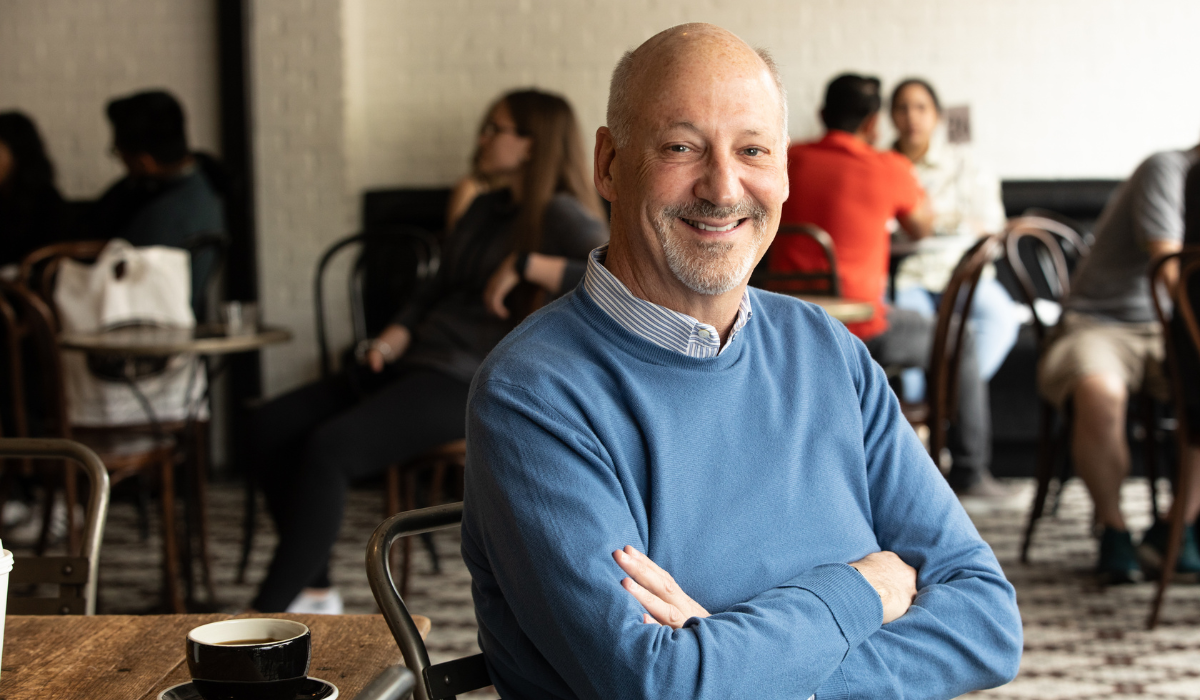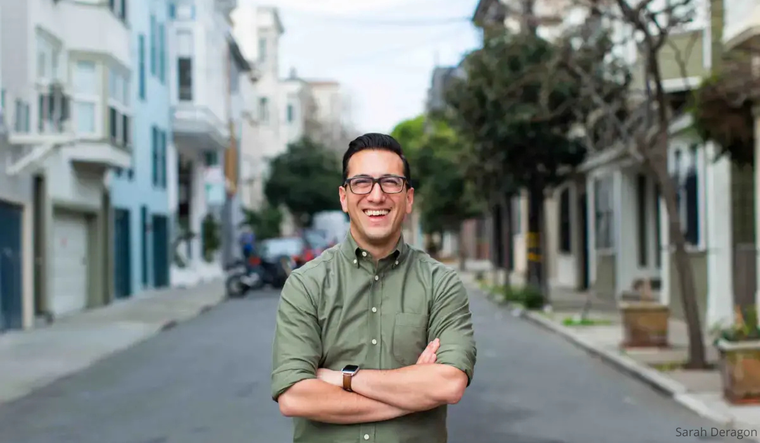What Is a Pre-Mortem Ritual? Ron Shaich, Founder of Panera Bread, Shares the Method that Helps Him Live a Life Without Regrets
Ron Shaich has spent decades shaping the food industry. But beyond business success, the founder of Panera Bread and chairman of Cava has a deeply personal philosophy on life: the pre-mortem—a practice of reflecting on your life as if looking back from your deathbed to ensure you're making choices you'll respect.
Shaich does his premortem ritual annually, between Christmas and New Year's. He shares how the yearly practice has shaped his decisions, from personal health to work ventures, and how anyone can use it to live with purpose and intention.
A CONVERSATION WITH RON SHAICH
What is a pre-mortem ritual?
This is a focused way to project yourself into the future. Pre-mortem would represent a point in which there is no future. [You think about being] on your deathbed and saying to yourself, "Do I feel good and respect what it is that I've done with my time here?" Then you step back and ask," What will I respect in the areas of my life that are core?" Then you put in place a plan to accomplish that, and set up a process to review, quarterly, how you're doing on the projects to accomplish that.
What led you to the idea of creating a pre-mortem ritual?
It started in the 1990s when I watched my parents pass away. My mother had peace, but my father had regrets. That struck me deeply. I've always said that watching my mom and dad both go through this—one at peace with it, one not at peace with it—that the time to worry about whether you're going to respect yourself on your deathbed is not, shall we say, the ninth inning with two outs. You can't do very much about it. But much earlier in the game—third inning, fifth inning, seventh inning—you still can adjust how you will feel about yourself. What I swore watching my parents pass away was that I wanted to confront those issues. Not when it was too late, but when I still had a chance to get it right.
What's the process for starting this ritual?
To start, I look at my relationships—my relationship with my own body. This goes all the way from my teeth to other different medical things.
[Then], about my relationship with my family and friends, my children, the thousands of other people I interact with? Where do I want those relationships to be?
Then I look at my relationship with my work. What gives meaning to my life? How do I want to live my work life? And what [is my] relationship with my financial health? How much risk am I willing to take, or how do I want to think about spending and preparing for my estate planning?
Then I look at my relationship with my spiritual self. What it is I view and value.
In each of those areas, I'm clear what I'm going to respect. Then the question is: What are the projects that are going to get me there to allow me to accomplish that? I write all this down. That's what this is about; forcing us to confront today what will matter tomorrow. Then, do the really hard work of turning it into action steps to get there.
What tips can people use to evaluate what they want to accomplish in their pre-mortem ritual?
It's about first finding the time for reflection, allowing it to percolate up. It's not another to-do (list). I always find my best work happens when I am walking, in the shower, and sometimes even when I'm sleeping. I let it circle. Then I take out a piece of paper and start writing what is it I need to get done. What are the ways and the means to getting it done? What are the expectations I have for myself to get it done? I revise and adjust. These initiatives have to turn into projects. That's the important part. Be very clear [how you measure progress] at three and six months. I put accountabilities against dates against the objective.
In what way does a pre-mortem ritual apply to work situations?
I recently met with a leadership team and asked them to write two articles. I asked the team to take out a piece of paper and told them to write The Wall Street Journal or Financial Times article four years from now when people talk about what it was that allowed this company to be one of the most successful European food companies. Then, I asked them to write the lead paragraph on the five things they did to get there. I told them to take that same piece of paper and write the story about how the company went bankrupt. What were the things they did that led there? [It's] buying the future back to today, and then turning it into initiatives. It's all about planning backward from where you want to be.
What advice do you have for anyone who wants to hold themselves accountable to this plan?
I have a meeting with myself. I'll say, "Ron, you didn't get this done." [Or] "Ron, nice. Good job." It's the way I would deal with a team member who works for me, [where I'd] say, we'd agree on what your key initiatives are. We'd agree on what the key projects are. We'd agree what success looks like. Then we'd evaluate, did we get there or not.
In what way does your spirituality connect to the pre-mortem ritual?
For me, it's less a religious faith and more what it is at the highest level that I'm respecting. Am I really disciplined in living that or [not]? Am I living a life that transcends my day-to-day joy? But in my faith tradition or the way I think about things… I can't tell you whether there's a judgment day up there. I know that there's this judgment day here. And in my faith tradition, we live on through the memories of other people. What is it I need to do to feel that I am the kind of person I want to be? That informs everything else I do. It all ties together in this sense of: What is a life that I will respect?
What's the reaction of your children and friends to your pre-mortem ritual?
I think it's somewhere between rolling their eyes because dads are dads and actually doing it. I don't push them. I try to set an example and then let them choose for themselves. They're both serious young people who really think hard about themselves living a life they respect.
I have one friend that's taken this really seriously. She's laissez-faire. She rolls with the punches. And I just love her stepping back in her own interest and putting this on a piece of paper and holding herself accountable.
How does this practice empower us in our day-to-day lives?
I tend to think life is a lot like body surfing. You get out in the ocean, you have waves, and you pick the best wave you can. You make a judgment, and then you hop on the wave, and paddle as far as you can to get there. But you understand the wave takes you where it does. I don't think you can plan everything out. I don't think you can plan your future. A ton of what happens to us, probably more than half, is outside of our control. But I want to do something about the things I can. I want to help myself, and I want to direct myself in the direction of a life within the things I can't control, that I will respect and let the other things alone. I'm right in between a perfectly planned life and an unplanned life
If someone thinks they're too old and set in their ways to make changes using this practice, what would you tell them?
I just turned 71. You still have breath on this earth. You have the opportunity to choose what you do with your next breath, your next moment. And that's really the truth. I hope I continue to grow because that means I'm continuing to live until the day it's over. The game ain't over.
Do you have a favorite prayer or quote that connects you to the pre-mortem ritual?
A phrase I use to organize my life is the serenity prayer: God grant me the strength to do something about the things I can, the patience to accept the things I cannot, and the wisdom to know the difference. That's what we're trying to say here. Do not drive yourself crazy, but have the will to do something about the things you can.
And I'm adding to that: Know what will matter to you.
Ron Shaich is the founder of Panera Bread and chairman of Cava, a Mediterranean fast casual restaurant chain. He’s the author of Know What Matters: Lessons From a Lifetime of Transformations. You can read more about his work at www.ronshaich.com.
Celeste McCauley is a writer and editor who lives in Brooklyn, New York. She looks for everything inspirational in our everyday lives.
Please note that we may receive affiliate commissions from the sales of linked products.



